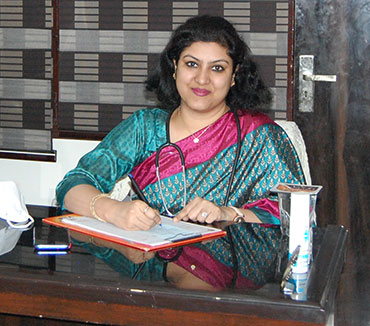Consult A Psychologist Online
Online therapy is a private, easy, and often cheap way to get help for mental health problems without having to go to a counseling center or therapist’s office in person.
People who could benefit from counseling can get in touch with professionals quickly and easily using Internet platforms. Depression, anxiety, stress, phobias, marital strife, low self-esteem, and other mental health concerns are only some of the numerous obstacles that people can overcome.
Also Read:
The word “online counseling” refers to the process of helping people with their mental health through the Internet. More and more counselors and people who need their help are using computers to talk to each other instead of standard face-to-face meetings.

Position: Senior Consultant
Degrees: MBBS, MD
Email: contact@delhimindclinic.com

Position: Senior Psychiatrist
Degrees: MBBS, DNB Psychiatry
Email: contact@delhimindclinic.com
Best Online Psychologist In India
People who could benefit from counseling can get in touch with professionals quickly and easily using Internet platforms. Depression, anxiety, stress, phobias, marital strife, low self-esteem, and other mental health concerns are only some of the numerous obstacles that people can overcome.
The term “online counseling” refers to the practice of providing mental health counseling services to clients via the Internet. Counselors and those in need of their services are increasingly turning to computer-based methods of communication rather than traditional face-to-face meetings.
Also Read:
Best Online Psychologist In India

Position: Senior Consultant
Degrees: MBBS, MD
Email: contact@delhimindclinic.com

Position: Senior Psychiatrist
Degrees: MBBS, DNB Psychiatry
Email: contact@delhimindclinic.com
Online Couples Counseling
The majority of married couples can benefit from couples therapy, according to research. Also, these alterations are long-lasting. Couples, however, rarely try to enhance their relationships with the help of scientifically-backed methods.
The term “online counseling” refers to the practice of providing mental health counseling services to clients via the Internet. Counselors and those in need of their services are increasingly turning to computer-based methods of communication rather than traditional face-to-face meetings.
Also Read:
People who could benefit from counseling can get in touch with professionals quickly and easily using Internet platforms. Depression, anxiety, stress, phobias, marital strife, low self-esteem, and other mental health concerns are only some of the numerous obstacles that people can overcome.

Position: Senior Consultant
Degrees: MBBS, MD
Email: contact@delhimindclinic.com

Position: Senior Psychiatrist
Degrees: MBBS, DNB Psychiatry
Email: contact@delhimindclinic.com
Online Psychologist India
People who could benefit from counseling can get in touch with professionals quickly and easily using Internet platforms. Depression, anxiety, stress, phobias, marital strife, low self-esteem, and other mental health concerns are only some of the numerous obstacles that people can overcome.
The term “online counseling” refers to the practice of providing mental health counseling services to clients via the Internet. Counselors and those in need of their services are increasingly turning to computer-based methods of communication rather than traditional face-to-face meetings.
Also Read:
We don’t consider therapy to be a requirement in India, despite the fact that regular mental health care is just as important as regular visits to the dentist, beautician, and doctor. Unfortunately, not even the country’s administration has given mental health the attention it deserves.

Position: Senior Consultant
Degrees: MBBS, MD
Email: contact@delhimindclinic.com

Position: Senior Psychiatrist
Degrees: MBBS, DNB Psychiatry
Email: contact@delhimindclinic.com
Online Psychiatrist Consultation
Patients can now get their questions answered by psychiatrists via video or phone calls posted on internet healthcare sites.
Those who potentially benefit from counseling have easy access to trained professionals through online resources. People are capable of overcoming a wide range of difficulties, including but not limited to mental health issues including depression, anxiety, stress, phobias, marital problems, and low self-esteem.
Also Read:
Online access makes it easier to overcome the stigma that has historically been attached to mental health issues. Teletherapy can be an important tool to help people learn more about mental health. Even if you feel like your mental well-being is strong, online therapy can help you become psychologically stronger.

Position: Senior Consultant
Degrees: MBBS, MD
Email: contact@delhimindclinic.com

Position: Senior Psychiatrist
Degrees: MBBS, DNB Psychiatry
Email: contact@delhimindclinic.com